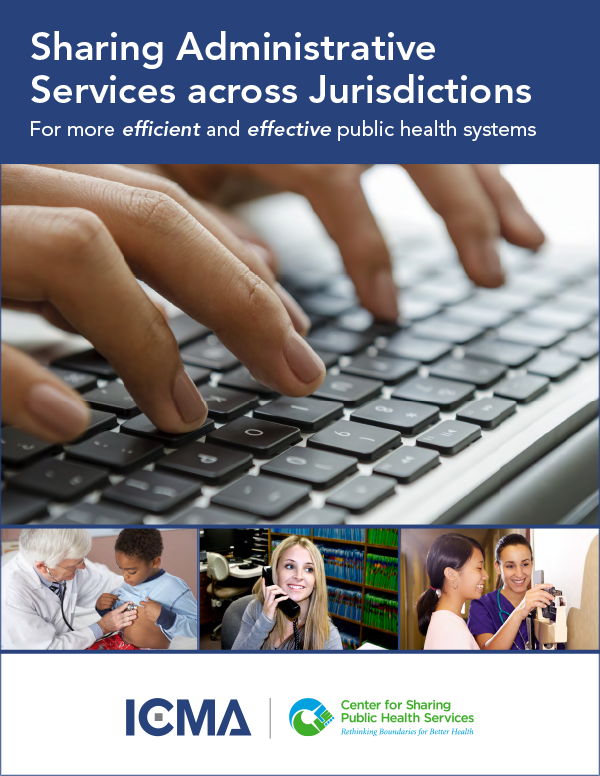
The need for local control has always been a central argument against efforts to shift to sharing government services or proposals for a more regional structure in the delivery of government services. In an age of increasing fiscal constraints, however, the need to share services in order to maintain or expand service delivery has led more local governments to reexamine what options they have.
During 2014, ICMA worked with the Center for Sharing Public Health Services (CSPHS) at the Kansas Health Institute, Topeka, Kansas (http://phsharing.org) on a national study of agreements on shared administrative services by public health departments. Public health issues go beyond city limits or county lines, and shared administrative services—such back-office activities as billing and invoicing, grant-writing and proposal development, communications, and IT support, to name a few—intuitively make sense. The study provided an opportunity to learn how such agreements worked in reality.
Survey Results
ICMA began by conducting a national survey of local governments to learn what types of shared services agreements for administrative services exist among local government public health offices. A total of 1,119 local governments responded to the survey (a 24 percent response rate). From these responses, 535 reported having responsibility for public health services. Thirty-six percent of local governments reported they share back-office functions.
A slightly higher percentage of local governments under 25,000 population report shared back-office functions than do larger local governments. The top three reasons for sharing services cited were 1) to achieve economies of scale, 2) to promote higher quality and effective service delivery, and 3) to save money.
In addition to the survey, ICMA coproduced with CSPHS three in-depth case studies of jurisdictions that had adopted such practices. These case studies featured the lessons learned from the agreements. The first case study looks at the implementation of an intergovernmental agreement that governs how Prowers County, Colorado, provides public health administrative services to its neighboring county, Kiowa County, Colorado.
Kiowa is an extremely rural county with approximately 1,400 residents. When the county’s public health director resigned, a qualified candidate could not be found at the salary the county had to offer. The Colorado Department of Public Health and Environment staff encouraged Kiowa County to consider contracting administrative services from Powers County Public Health and Environment. To date, the agreement has worked well for all involved.
Pooling Resources
The second case study features a regional public health district formed by 10 towns in eastern Connecticut, the largest of which provides considerable administrative services through a long-term service agreement. By pooling resources, the towns were able to increase the scope and quality of public health services by hiring full-time professional staff members who were fully trained and had the needed expertise. This change resulted in a more stable and qualified workforce and greater professionalism.
The third and final case study presents a five-county public health district that provides all administrative and program services for the participating counties. The state of Kentucky provided financial incentives to form a district health department. Under the agreement, one public health administrator provides oversight for the clinics in the participating counties. The formation of the district also increased the eligibility for state and federally funded programs that primarily go to larger populations.
The full report Sharing Administrative Services across Jurisdictions features a series of findings designed to help practitioners think through what issues they should address in order to replicate a similar agreement for their jurisdictions.
New, Reduced Membership Dues
A new, reduced dues rate is available for CAOs/ACAOs, along with additional discounts for those in smaller communities, has been implemented. Learn more and be sure to join or renew today!
